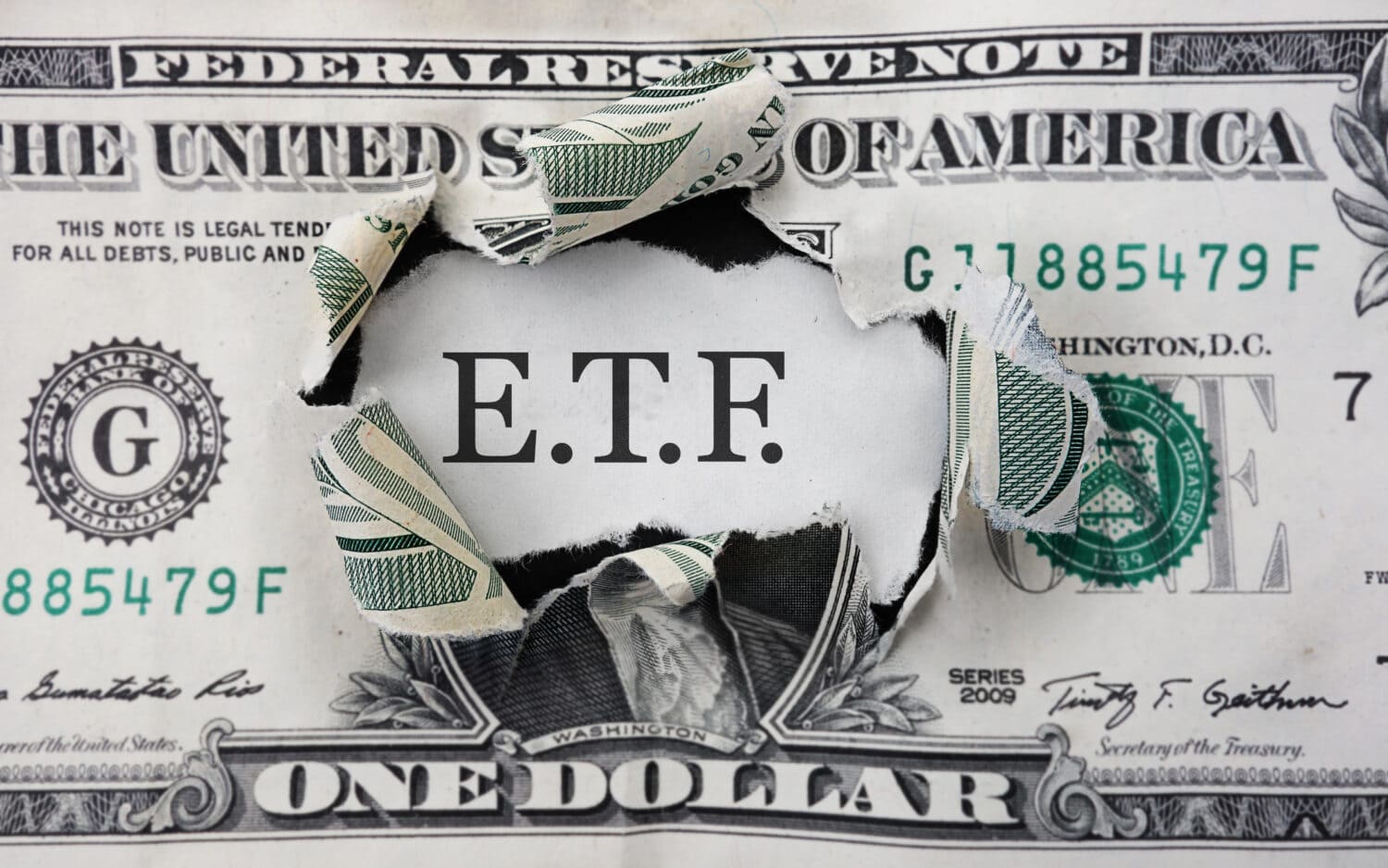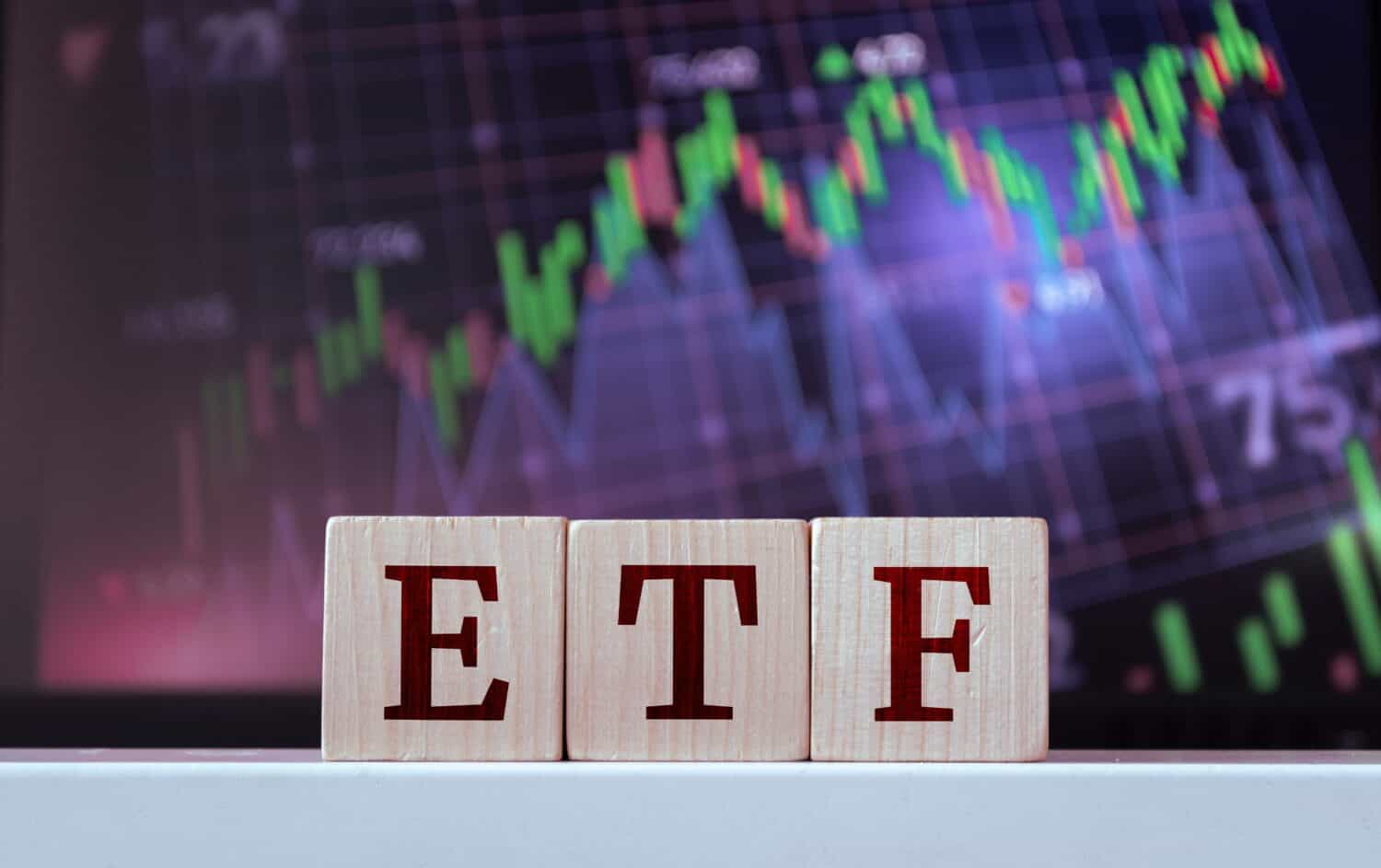
ETFs offer a convenient way to invest in many stocks at once. Each ETF holds a “basket” of different stocks, usually based on a certain index or type of stock. When you purchase an ETF, you’re purchasing a very small amount of all these stocks.
However, tons of ETFs are available today, with new ones popping up every year. Growth ETFs are focused on stocks with a high likelihood for growth, hence the name. Two of the most popular growth ETFs are Vanguard Growth ETF (NYSE: VUG) and Invesco QQQ Trust Series 1 (NASDAQ: QQQ).
While VUG offers exposure to high-growth stocks with the potential for significant returns, QQQ provides a more balanced portfolio with potentially lower volatility.
These ETFs offer exposure to high-performing companies but differ based on their holdings and risk profiles. We’ll dive into this in more detail below.
What is VUG?

VUG is an exchange-traded fund managed by Vanguard. It’s designed to track the performance of the CRSP US Large Cap Growth Index. Simply put, VUG holds stocks that are in this index, seeking to mirror what the index is doing.
When a stock moves out of the index, VUG is managed accordingly.
Typically, these companies are industry leaders and are expected to experience significant growth. Most investors choose VUG because they want exposure to these high-growth companies without having to go through and pick individual stocks.
What is QQQ?

QQQ is another very popular ETF. Unlike VUG, which tracks a specifically growth-oriented index, QQQ tracks the Nasdaq-100 Index. This index includes the 100 largest non-financial companies listed on the Nasdaq exchange. Many are tech-focused simply because they tend to be the largest non-financial companies.
QQQ also includes a wide range of industries, though. You’ll also find consumer goods, communication services, and healthcare.
When you invest in QQQ, you can be exposed to these leading, innovative companies across many different sectors. It’s a more diversified option than VUG, as QQQ doesn’t focus solely on growth stocks.
VUG vs. QQQ: Which Fund Is Right for You?

Fees
Like all ETFs, VUG and QQQ have fees that pay for their management costs. VUG’s expense ratio is 0.05%, which is much lower than most other ETFs. Therefore, you’ll get a larger percentage of your return when you invest in VUG.
QQQ has a higher expense ratio of 0.2%. You’ll pay more in fees, which means less of your return over time.
Of course, these fees are very low. However, holding these stocks for decades can easily lead to thousands of dollars in fees paid between VUG and QQQ.
Risk
Both of these ETFs are riskier than many others. They’re oriented toward growth, which also means that their risk is higher.
One way to measure risk is with Beta. Beta measures how similar a stock’s volatility is to the overall market. The market has a volatility of 1. A rating higher than one would indicate more volatility (and more risk), while volatility lower than one would indicate less volatility (and less risk).
QQQ has a Beta of 1.19, meaning it is quite a bit more volatile than the overall market. VUG has a Beta of 1.2, making it also much more volatile than the market. In the end, VUG is only slightly more volatile than QQQ, though that volatility can add up over time, too.
If you’re looking for a safer, growth-oriented stock, QQQ may be the best option.
The lower expense ratio of VUG translates to potentially higher returns, but its higher Beta implies greater risk. Conversely, QQQ’s slightly higher fees might eat into returns, but its Beta suggests potentially lower volatility.
Historical Performance
Both VUG and QQQ have an impressive track record of growth. However, their historical performance does depend on market conditions. When they go down, they can go down a lot. Analyzing past performance can help you gain some insights, but it’s important to remember that past performance doesn’t necessarily translate to future results.
Here’s a table comparing the performance of each of these ETFs:
| QQQ | VUG | |
| 1 Year | 30.82% | 33.29% |
| 3 Year | 11.32% | 9.70% |
| 5 Year | 21.84% | 18.83% |
| 10 Year | 18.31% | 14.88% |
As you can see, these ETFs have a similar historical performance. QQQ outperforms according to some metrics, while VUG outperforms according to others.
VUG focuses largely on pure growth stocks, while QQQ has a broader sector exposure. The difference can impact their performance depending on what sectors are leading the market. For example, a strong tech bull run might favor QQQ, while a surge in other areas may better benefit VUG.
Top Holdings
VUG and QQQ offer exposure to leading companies, but their underlying holdings differ due to their respective index focus.
Expect to see prominent technology giants like NVIDIA (NASDAQ: NVDA) and Amazon (NASDAQ: AMZN) in VUG. Other sectors may be represented if the company is known for its high-growth potential. However, VUG is exceptionally tech-focused despite not being tech-only.
QQQ’s holdings are also dominated by tech giants. However, the exact same tech companies are not in both stocks.
For instance, VUG holds a higher percentage of Tesla, Inc. (NASDAQ: TSLA) than QQQ. QQQ has a higher percentage of Meta Platforms (NASDAQ: META).
VUG leans heavily towards pure growth stocks, concentrating on companies with the potential for explosive growth but also carrying higher risk. On the other hand, QQQ offers a more balanced approach with its exposure to leading companies across various sectors. This diversification can provide some stability during market downturns while still offering the potential for significant growth.
Investment Time Horizon
How long you plan to hold these ETFs should impact your pick.
If you have a long investment horizon (think retirement savings or long-term goals), you can potentially stomach the higher volatility of VUG. The potential for long-term growth offered by VUG’s focus on high-growth stocks might be more appealing if you’re holding for the long term.
Market fluctuations tend to even out over time, and historically, VUG has delivered some pretty good returns over the long haul.
For a shorter investment horizon, the lower volatility of QQQ might be more suitable. QQQ is very diversified and tends to move more evenly, potentially minimizing losses if you need your money sooner.
Ultimately, your option depends on how long you plan to keep your money invested.
Choosing Between VUG and QQQ

VUG and QQQ are both pretty compelling growth ETFs. They have the potential for very big gains, though they are also riskier than more balanced stocks.
VUG offers exposure to specifically high-growth stocks with the potential for explosive returns. However, it also carries a higher risk due to its concentrated holdings and higher Beta. It might be a good fit for a long-term investor who doesn’t mind some volatility.
QQQ provides a more balanced approach, as it follows the Nasdaq-100 Index. Its broader diversification can offer some stability while still offering growth potential. It might be suitable for investors with shorter time horizons or those prioritizing lower risk.
The gains of QQQ tend to be more even than VUG, simply put.
When choosing a stock, consider your own risk tolerance and time horizon. It’s a good idea to hedge your bets with a more stable stock, like SPY or VOO. It’s a good idea to diversify the ETFs you hold, even though each ETF also holds various stocks.
Travel Cards Are Getting Too Good To Ignore (sponsored)
Credit card companies are pulling out all the stops, with the issuers are offering insane travel rewards and perks.
We’re talking huge sign-up bonuses, points on every purchase, and benefits like lounge access, travel credits, and free hotel nights. For travelers, these rewards can add up to thousands of dollars in flights, upgrades, and luxury experiences every year.
It’s like getting paid to travel — and it’s available to qualified borrowers who know where to look.
We’ve rounded up some of the best travel credit cards on the market. Click here to see the list. Don’t miss these offers — they won’t be this good forever.
Thank you for reading! Have some feedback for us?
Contact the 24/7 Wall St. editorial team.





